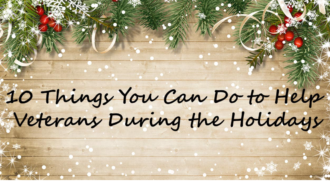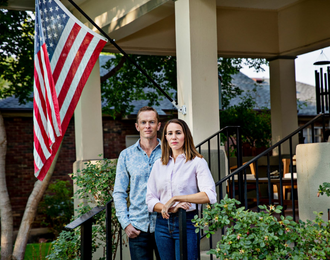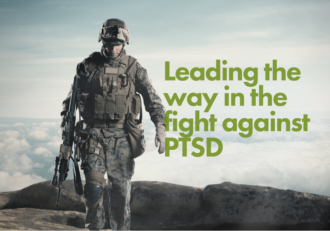PTSD and Marriage: 5 Things Spouses Need to Know

From Military.com
You never invited combat stress or post-traumatic stress disorder to be a part of your marriage. But there it is, anyway, making everything harder.
Sometimes you want to give up. Why does everything have to be so, so hard? Other times, you wish someone would just give you a manual for dealing with the whole thing. Surely there’s a way to know how to handle this disease.
Like the rest of marriage, loving someone who suffers from PTSD or who is trying to work through the ghosts of trauma — whether combat related or not — doesn’t come with a guidebook. And although the whole thing can feel very isolating (everyone else seems fine! Is my marriage the only one in trouble?) that doesn’t mean you’re alone.
Therapists who specialize in PTSD know that while some couples may put on a good show for the outside world, dealing with trauma is hard work and, no, everything is not perfect.
If you’re dealing with PTSD at home, you are not alone.
Husband and wife team Marc and Sonja Raciti are working to help military couples work through how PTSD can impact their marriages. Marc, a veteran, has written a book on the subject, “I Just Want To See Trees: A Journey Through PTSD.” Sonja is a licensed professional counselor.
The Racitis said there are five things that a spouse dealing with PTSD in marriage should know.
1. It’s normal for PTSD to impact the whole family.
If you feel like your life has changed since PTSD came to your home, you’re probably right. The habits that might help your spouse get through the day, like avoiding crowded spaces, may become your habits too.
“PTSD is a disease of avoidance — so you avoid those triggers that the person with PTSD has — but as the partner you begin to do the same thing,” Sonja Raciti said.
Remember that marriage is a team sport, and it’s OK to tackle together the things that impact it.
2. Get professional help
. The avoidance that comes with PTSD doesn’t just mean avoiding certain activities — it can also mean avoiding dealing with the trauma head on. But trying to handle PTSD alone is a mistake, the Racitis said.
“We both are really big into seeking treatment, getting a professional to really help you and see what treatment you’re going to benefit from,” Sonja said. “Finding a clinician who you meet with and click with and really specializes in PTSD is so, so important.”
3. No, you’re not the one with PTSD. But you may have symptoms anyway.
The Racitis said it is very common for the spouses of those dealing with PTSD to have trouble sleeping or battle depression, just like their service member. That’s why it’s important for everyone in the family to be on the same page tackling the disease — because it impacts them too.
4. Be there.
As with so many issues in marriage, communication is key, the Racitis said. But also important is being supportive and adapting to whatever life built around living with PTSD looks like for you.
“You have to adapt — the original man you married has changed. The experience has changed him and that’s part of life,” Sonja says. “He has gone through something that has been horrific, and life altering and life changing, and together you’re going to adapt to that and you’re going to help support each other in that.”
5. Don’t give up.
It can seem very tempting to just give up and walk away, they said. After all, the person you married may have changed dramatically. And while splitting may ultimately be the right answer for you, it doesn’t have to be only solution on the table.
“Don’t give up,” Marc said. “It’s so easy to do. It’s the path of least resistance. But people who engage, people who actively engage — these are the marriages that survive.”
— Amy Bushatz can be reached at amy.bushatz@military.com.





